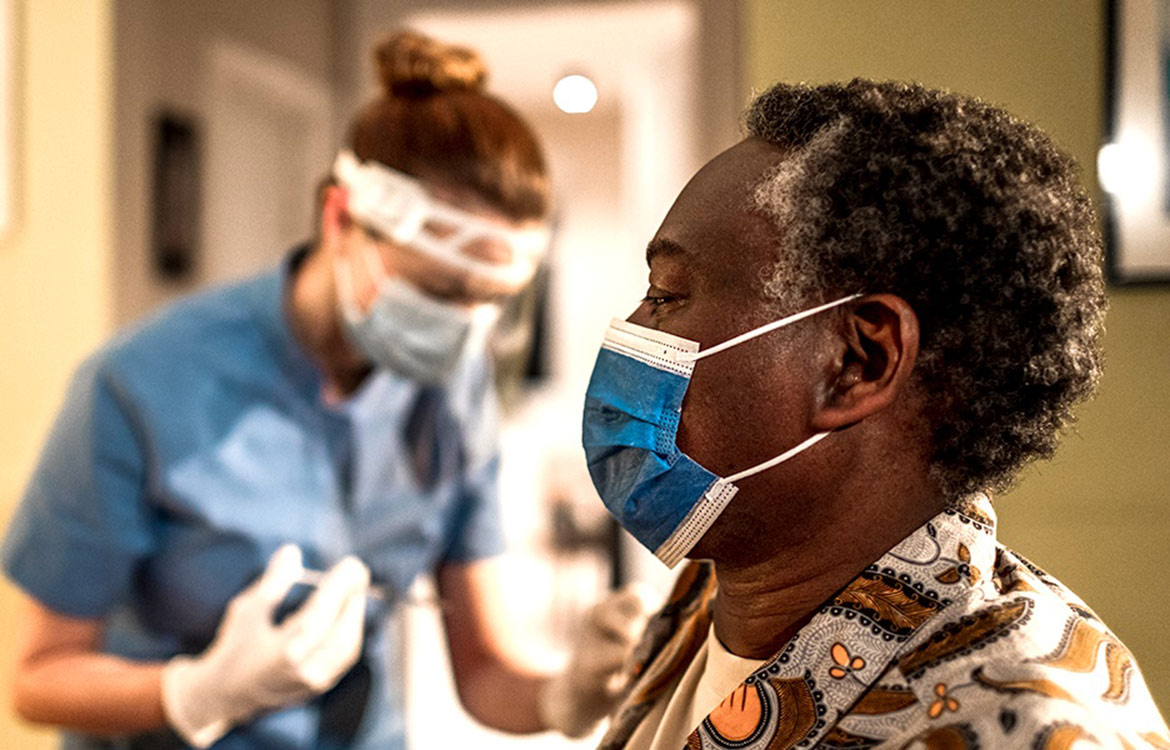U.S. Recommending Third Dose of COVID Vaccine After Eight Months

The federal government is planning to make booster doses of mRNA vaccines available starting the week of Sept. 20. U.S. Surgeon General Vivek Murthy said Aug. 18 that the move was designed to help boost waning immunity in vaccinated individuals especially to mild and moderate illness caused by COVID-19.
“Recent data makes clear that protection against mild and moderate disease has decreased over time,” Murphy said. “This is likely due to waning immunity and the strength of the Delta variant. Even though new data affirms that vaccine protection remains high against the worst outcomes of COVID, we are concerned that this pattern of decline we are seeing will continue in the months ahead, which could lead to reduced protection against severe disease, hospitalization and death.”
People will become eligible for the booster eight months after they received their second dose of the Moderna or Pfizer vaccines, the White House said. That means that people who were vaccinated earliest in the pandemic – healthcare workers, the elderly and nursing home residents – will be eligible for the third vaccine dose first.
The decision is pending both Food and Drug Administration approval and Centers for Disease Control review. But most experts expect the boosters to be approved.
The CDC released three new studies that demonstrate:
- Vaccine induced protection against COVID decreases over time.
- Vaccine effectiveness remains relatively high against hospitalization and death.
- Vaccine effectiveness is lower against the highly contagious Delta variant.
CDC Director Rochelle Walensky said two of the studies, one in New York State and one conducted by the Mayo Clinic, showed that vaccine effectiveness against infection declined substantially. The New York study showed a drop from 92 percent to 80 percent effectiveness the further someone was from vaccination. The Mayo Clinic study showed declines for the Pfizer vaccine from 76 percent to 42 percent and for Moderna of 86 percent to 76 percent. The Mayo clinic data runs through July 16.
The third study looked at vaccine effectiveness against infection for residents of nursing homes and found the vaccines were only 53 percent effective against the Delta variant versus 75 percent effective against pre-delta variants in March. The data in this study runs up to Aug. 1.
Walensky emphasized that vaccine effectiveness remained high against hospitalization and death up to 24 weeks after the second dose. Data from a fourth study being published by the CDC showed effectiveness against the worst outcomes of COVID only declined 1 percent (86 to 85 percent).
Earlier in August, the FDA approved a third dose for immunocompromised individuals — particularly those who had received a solid organ transplant or have a similar level of compromised immunity. These individuals show a lower immune response to the vaccines than people with no immunity issues.
The push for booster shots or additional doses comes during an unexpected wave of hospitalizations and deaths related to the Delta variant of SARS-CoV-2, the coronavirus that has caused the current 18-month long pandemic. While people who have been vaccinated may contract the Delta variant at higher rates than previous variants, severe illness and hospitalizations remain rare. Unvaccinated individuals account for the vast majority of hospitalizations and recent deaths from the virus.
In mid-August, Pfizer submitted data to the FDA that shows a third dose of its vaccine produced “significantly higher neutralizing antibodies” against the original coronavirus as well as Beta and Delta variants than the original two-dose regimen, Albert Bourla, chairman and chief executive officer of Pfizer, said in a release. “The data we’ve seen to date suggest a third dose of our vaccine elicits antibody levels that significantly exceed those seen after the two-dose primary schedule.”
Dr. Anthony Fauci, the nation’s top infectious disease doctor, said there is good evidence supporting the need for a third dose of the vaccine:
- Antibody levels decline over time
- Higher levels of antibodies are associated with higher levels of vaccine efficacy
- Higher levels of antibodies may be required to protect against the Delta variant
- In trials, a booster mRNA increased measurable antibodies (referred to as an antibody titer) in the blood stream 10 times
“You get a dramatic increase in antibody titers when you do a third immunization dose,” Fauci said.
Should you get a booster when it’s available? It is recommend you wait until eight months after your last dose, and then discuss it with your primary care doctor.





